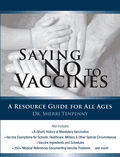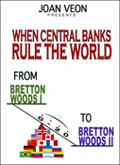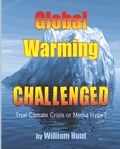FEDS FAIL TO PROTECT AMERICANS FROM COUNTERFEIT MEDICATIONS
By
NWV News writer Jim Kouri
Posted 1:00 AM Eastern
September 7, 2010
© 2010 NewsWithViews.com
Hazim Gaber, 22, of Edmonton, Canada, was sentenced last Friday in Phoenix, Arizona by U.S. District Court Judge James A. Teilborg to 33 months in prison for selling counterfeit cancer drugs using the Internet. Gaber was indicted by a federal grand jury in Phoenix on June 30, 2009, on five counts of wire fraud for selling counterfeit cancer drugs through the web site DCAdvice.com.
Gaber was arrested on July 25, 2009, in Frankfurt, Germany, and was extradited to the United States on December 18, 2009. At his plea hearing in May 2010, Gaber admitted selling what he falsely claimed was the experimental cancer drug sodium dichloroacetate, also known as DCA, to at least 65 victims in the United States, Canada, the United Kingdom, Belgium, and the Netherlands between October and November 2007.
“Gaber used the Internet to victimize people already suffering from the effects of cancer,” said Dennis K. Burke, U.S. Attorney for the District of Arizona during a press teleconference. “Now he will go to prison for this bogus business and heartless fraud.”
According to the plea agreement, Gaber charged $23.68 for 10 grams of the purported DCA, $45.52 for 20 grams or $110.27 for 100 grams, plus shipping.
In actuality, Gaber admitted he sent victims a white powdery substance that was later determined through laboratory tests to contain starch, dextrin, dextrose or lactose, and contained no DCA. According to court documents, along with the counterfeit DCA, the packages also contained a fraudulent certificate of analysis from a fictitious laboratory and instructions on how to dilute and ingest the bogus DCA.
DCA is an experimental cancer drug that has not yet been approved by the U.S. Food and Drug Administration for use in the United States. According to the plea agreement Gaber knew that the web site DCAdvice.com contained false claims that it was the only legal supplier of DCA and falsely claimed it was associated with the University of Alberta.
According to information contained in the plea agreement, DCA is an odorless, colorless, inexpensive, relatively non-toxic experimental cancer drug that is highly sought by cancer patients. A doctor at the University of Alberta in Canada published a report in early 2007 summarizing the results of a study, which showed that DCA caused regression in several cancers, including lung cancer, breast cancer and cancerous brain tumors.
According to information contained in the plea agreement, DCA cannot be prescribed by a medical doctor in the United States or Canada, since it is currently not approved for use in patients with cancer, nor is DCA available in pharmacies.
While the investigators and prosecutors deserve praise for their actions in the Gaber case, the problem is that the U.S. government is failing to protect Americans by being proactive rather than reactive, say law enforcement officials.
With the Obama Administration and Democrat leaders in both houses of the US Congress desperately pushing their overhaul—many say government takeover—of US health care, a report obtained by the National Association of Chiefs of Police’s Fraud & White Collar Crime Committee sheds light on the fraud and corruption already existing in government medical programs.
Those Americans demanding the US government to allow citizen’s access to foreign prescription drugs should heed the concerns of the world’s foremost health organization. According to the World Health Organization’s definition a counterfeit medicine “is one which is deliberately and fraudulently mislabeled with respect to identity and/or source.
Counterfeiting can apply to both branded and generic products and counterfeit products may include products with the correct ingredients or with the wrong ingredients, without active ingredients, with insufficient active ingredients or with fake packaging.”
It is estimated that one in 20 pharmaceutical products on the market is counterfeit, with the number rising to one in three in some developing countries.
Counterfeit pharmaceuticals are manufactured and distributed by criminals, companies or individuals who have the desire to make money unlawfully. They may contain too much, too little or no active ingredient, the wrong ingredients or high levels of impurities, contaminants and even toxic substances. They could be reject or out-of-date formulations withdrawn from the market which are obtained by counterfeiters, relabeled as bona fide product and introduced back into circulation. They have killed and injured thousands around the world.
The consequences of such counterfeits can vary. They can either fail to treat the illness or condition for which they are being taken (resulting in prolonged illness or death and wastage of valuable healthcare resources) or they can be the direct cause of death by containing lethal ingredients. Whether they fail to promote or restore health, or are the direct cause of death, they are fast becoming a global menace — both to their unwitting consumers and to the pharmaceutical industry as a whole.
Participants at the Global Forum on Pharmaceutical Anti-counterfeiting in Paris recently demanded increased cooperation at all levels and a framework convention to fight counterfeiting of medicines. Combating counterfeit drugs requires the involvement of all parties in the healthcare and pharmaceutical delivery system, placing the onus on manufacturers, all supply chain stakeholders, patients and health professionals as well as regulators and law enforcement to mobilize against fake medicines. Counterfeit drugs penetrate health systems throughout the world, both in industrialized and in developing countries.
The problem is compounded in Europe, where free trade in pharmaceutical products exists. Governments can and do set different pricing, leading to hugely divergent prices between countries such as Greece and Sweden. This encourages parallel imports, which in turn allows counterfeit products to be introduced.
Julian Mount, Senior Director European Trade, Pfizer Inc. said “there is a need for stakeholder accountability, uniform systems and regulation leading to accountable supply chain management by all players delivering medicines to patients in Europe. This means pan-European legislation, regulatory coordination, appropriate technologies and the need to better enforce the repackaging of medicines to ensure patient safety and medicine integrity.”
The same could apply to other regions of the world, notably Africa, according to participants from Nigeria and Ghana.
With increasing access to potentially lethal medicines at cheap prices over the Internet, Jim Thomson, CEO of the Centre for Mental Health in the United Kingdom, warned of the “loaded gun” that fake drugs represent:
“Potent substances are freely available on the Internet and can be ordered easily without any prescription and any authentication of sources, making the public vulnerable to health hazards and public health vulnerable to growing anti-microbial and drug resistance. Because technology has advanced so quickly, it is possible to imagine a diagnostic kit that is sold or preferably supplied at the manufacturer’s expense with a prescription drug so that patients can test the drug for authenticity before they take it.”
| Subscribe to the NewsWithViews Daily News Alerts! |
“As long as the fight against counterfeits is not a concerted effort, criminals will be able to exploit the loopholes in the system,” says Ian Lancaster, Director of Reconnaissance International, specialists in anti-counterfeiting strategies and organizers of the Global Forum. “The fight includes prevention measures by manufacturers, communication and effective education of professionals and patients, and ensuring that punishments are appropriate to this deadly crime.”
© 2010 NWV - All Rights Reserved













 Share
This Article
Share
This Article




